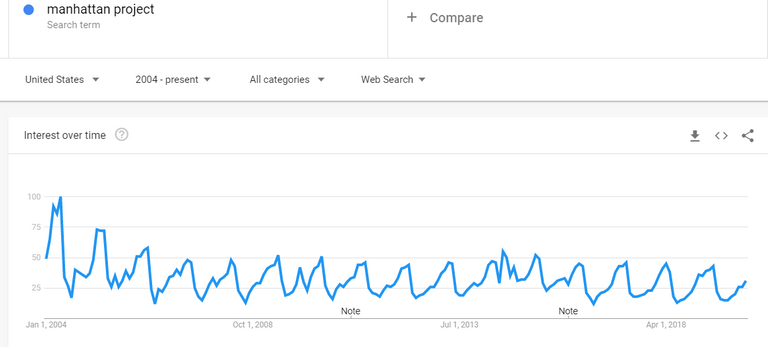Curating the Internet: Science and technology digest for February 20, 2020
A paper that claimed link between heart-attacks and vaping has been retracted; IOTA found the bug that led to their recent hack, and patched the wallet, but their network remains offline; Tech Mahindra and the Indian state of Telengana have launched blockchain accelerator with plains for creating the blockchain capital of the world, centered in Hyderabad; An argument for a grand program to put the US back ahead of China in STEM capabilities; and a Steem essay discussing research that found a link between seismic activity and movement of the Earth's poles
Straight from my RSS feed | Whatever gets my attention |
Links and micro-summaries from my 1000+ daily headlines. I filter them so you don't have to.
First posted on my Steem blog: SteemIt, SteemPeak*, StemGeeks.
- Journal retracts hotly contested paper on vaping and heart attacks - In 2019, the Journal of the American Heart Association (JAHA) published an article that found a link between heat attacks and vaping. At around the same time, one of the authors published the blog post, More evidence that e-cigs cause heart attacks, this time from PATH. Shortly after publication, however, Brad Rodu called for a retraction, arguing that the paper failed to consider whether the subjects began vaping before or after their heart attacks, and asserted that of the 38 patients in the study, the majority began vaping after their heart attacks. The journal first issued a correction, saying that the author had not secured licensing for the data in the paper, and now the paper has been retracted with the notation that it did not account for the order of events between vaping and heart attacks. Authors, Stanton Glantz and Dharma Bhatta however, say that they stand by the paper - as written - and posted another blog post.
- IOTA Updates Trinity Desktop Wallet to Partly Address Recent Hack - The IOTA network recently experienced a hack that began in January and is estimated to have taken somewhere between $300,000 and $1,600,000 ($1.6 million). The firm says that they found the vulnerability that permitted the hack in the platform's Trinity desktop wallet. The wallet has now been updated to version 1.4.1, and users are being instructed to update their wallets and check their balances. As a result of the hack, the IOTA Foundation shut down the platform's coordinator on Feb 12, which effectively halted all transactions. At the time of this writing, the coordinator remains offline. This hack was previously covered in Curating the Internet: Science and technology digest for February 14, 2020. Also, a totally unrelated article, IOTA FOUNDER THREATENS FOUNDATION WITH LEGAL ACTION OVER 25M TOKENS also caught my attention, recently.
- Indian IT Giant Tech Mahindra and Local Gov’t Launch Blockchain Accelerator - After a 2018 memorandum of understanding (MOU) between Tech Mahindra and the government of Telangana, in India, the T-Block Accelerator was formed. It aims to give a boost to blockchain projects that have identified strong real-world use cases, and to also strengthen the overall blockchain industry. The MOU takes a particular focus on the city of Hybaderbad, and pledges to make the state into "blockchain capital of the world." Registration opened in February, and participation involves a one week "boot camp" followed by four additional weeks of intensive training. In an effort to establish a Telengana Blockchain District, the state has also signed a number of MOUs with other blockchain firms. This effort is challenged, however, by the Indian government's 2018 bank prohibition against doing business with cryptocurrency firms. Following a series of Indian Supreme Court hearings between January 14 and January 23, the industry is currently awaiting a decision for a case has been progressing through the courts since April of 2018.
- Time Is Running Out: The U.S. Needs a High-Tech Manhattan Project - Here is the crux of the argument:
We need to wrest the initiative in high tech from China and re-establish American dominance in telecommunications, computation, artificial intelligence, materials science, chip design and lithography, manufacturing, and other key fields. I don't care how much it costs. If we don't spend the money to ensure America's number one position now, we'll go broke in any case.
andThink Manhattan Project. Think Sputnik moment. Think JFK's Moonshot. Think Reagan's Strategic Defense Initiative. We need a grand mobilization of material and human resources to meet the challenge of the 21st century.
The argument is mostly backed by Huawei's dominance in the 5G technology space. Although the US has limited its national exposure to Huawaei's alleged espionage and corporate espionage activities, the article worries that Huawei is still a market leader, in large part because many of our allies are still partnering with Huawei. -h/t Communications of the ACM: Artificial Intelligence. Aside: I'm pretty sure I've read variants of this headline quite a few times since the 1990s, so out of curiosity I checked Google Trends for interest in "manhattan project". Any bets that these peaks follow some sort of annual government funding cycle? Hiroshima and Nagasaki were in August/1945, but the peaks generally occur between April and July. Or, I suppose it could have something to do with school history class calendars, too.

- Steem @yomismosoy: Is there a relationship between the poles' motion and volcanic activity? A brief essay and some digital art - In this post, @yomismosoy discusses a recent study that compared 227 months worth of data between 2000 and 2018. The data under study included measurements of the Earth's rotational access, earthquake magnitudes, and volcanic eruptions of Italy's Mount Etna. Mt. Etna was selected because it is located near the 37th parallel, which is "the strip of maximum affectation as a result of the movement of the Earth's poles". According to the author, a proportional link is seen in the data, with corresponding peaks in 2002 and 2009. Additionally, the seismic activity has declined since 2010, perhaps as a result of abrupt changes in the Earth's magnetic field. In addition to a description of the research, the post also includes an original piece of digital artwork. (A 10% beneficiary setting has been applied to this post for @yomismosoy.)
In order to help bring Steem's content to a new audience, if you think this post was informative, please consider sharing it through your other social media accounts.
This post will also appear on my pre-Steem blog, chescosteve.blogspot.com.
And to help make Steem the go-to place for timely information on diverse topics, I invite you to discuss any of these links in the comments and/or your own response post.
Beneficiaries
- Cited author(s) - yomismosoy - 10%
- Experimental - penny4thoughts - 18%
- Posting and/or scheduling service (steempeak.com) - steempeak - 5%
- Steem/RSS services (steemrss.com) - torrey.blog - 5%
- STEM curation - steemstem - 5%
About this series
Sharing a link does not imply endorsement or agreement, and I receive no incentives for sharing from any of the content creators.
Follow on steem: remlaps-lite, remlaps
If you are not on Steem yet, you can follow through RSS: remlaps-lite, remlaps.
Thanks to SteemRSS from philipkoon, doriitamar, and torrey.blog for the Steem RSS feeds!
